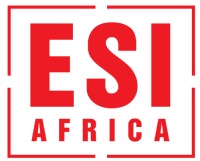How coal and low-value industry stall South Africa’s green future
South Africa needs proper coding of these components and measures to prevent manipulation of local content
South Africa’s just energy transition is being undermined by low-value industrial activity, deepening inequality and a continued dependence on coal, which is cancelling out potential gains from renewables and limiting meaningful job creation.
This is the belief of Dr James Musonda, who is a Senior Researcher in the Just Energy Transition project at the Institute for Economic Justice.
Speaking to ESI Africa at Windaba 2025, Musonda warned that as long as South Africa does not scale up renewable energy production and coal remains the main source of electricity production, then any water savings made from renewables are largely offset by coal’s high water usage.
He added that while there is cause for celebration around increased electricity capacity, these gains do not address the country’s underlying dependence on coal.
Millions without affordable electricity
Musonda stressed the importance of community involvement and engagement in all energy projects.
“Yes, we’ve ended loadshedding, and that’s a very good thing. But what does that mean when, first of all, about 8.5 million people still do not have access to electricity, and electricity has become unaffordable? When around 10 or 11 million people are supposed to be on free basic electricity, only about two million actually have access.
“What do these benefits really mean? When you talk about Black economic empowerment, a few people see increased spending, but it benefits only a small elite.”
Touching on the issue of local content, Musonda stated that much of the local content spending involves local suppliers providing imported goods. He said the country needs proper coding of these components and measures to prevent manipulation of local content.
“Also, we have to look at the different ways that companies might undermine existing policies. For example, there are issues with the staged consignment of certain components and coding in the battery sector, where cells are coded the same way as batteries.
”This matters because, when sales come, local firms can use these components to develop containerised solutions and other battery systems to sell to the local economy and export abroad. But when batteries arrive fully assembled from China, it kills the industry. Those are some of the challenges we need to address.”
Cover photo: Solar system and wind power turbines in Germany.


